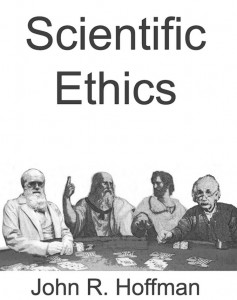I teach a University Seminar course in Scientific Ethics at Arcadia University. The most recent syllabus provides information about the topics of the course. Students in the course prepare and present a written debate examining the ethical controversy associated with some aspect of science or technology. (Note: This page can now be reached directly at: http://www.tinyurl.com/ScientificEthics)
This course is available for the Summer 2012 semester and will run from May 21 – August 6, 2012. Students interested in taking the US275 Scientific Ethics course can either contact me or register on the Arcadia University Registrar’s webpage.
 Science reaches from beyond the laboratory into many aspects of our globally connected life in the twenty-first century. However, the decision on which advances should have a place in our world and which should be restricted continues to be hotly debated. In this course, we will examine how different types of ethical systems – both in the U.S. and in other parts of the globe – are associated with the making of legal, ethical, and moral decisions. This course does not require previous scientific coursework as we will examine the science of each issue from the viewpoint of ordinary citizens both here and abroad. Topics may include the debates on the differential social impact of science and technology on individuals and communities in different parts of the world in areas such as stem cells, gene therapy, drilling for oil in Alaska’s Arctic National Wildlife Refuge, and the transnational trafficking of human organs. Assignments will incorporate readings, discussions, position papers, and debates.
Science reaches from beyond the laboratory into many aspects of our globally connected life in the twenty-first century. However, the decision on which advances should have a place in our world and which should be restricted continues to be hotly debated. In this course, we will examine how different types of ethical systems – both in the U.S. and in other parts of the globe – are associated with the making of legal, ethical, and moral decisions. This course does not require previous scientific coursework as we will examine the science of each issue from the viewpoint of ordinary citizens both here and abroad. Topics may include the debates on the differential social impact of science and technology on individuals and communities in different parts of the world in areas such as stem cells, gene therapy, drilling for oil in Alaska’s Arctic National Wildlife Refuge, and the transnational trafficking of human organs. Assignments will incorporate readings, discussions, position papers, and debates.
TABLE OF CONTENTS:
UNIT 1. INTRODUCTION TO SCIENCE AND ETHICS
01 – Course Introduction
02 – Perspective and Controversy
03 – Introduction to Philosophy
04 – What is this thing called science?
05 – Thinking and Acting as a Scientist
07 – Ethical Relativism and Moral Objectivism
08 – Value and Social Contract Theories
09 – Egoism, Altruism, & Utilitarianism
11 – Religion and the Fact-Value Problem
12 – Moral Realism and the Challenge of Skepticism
13 – History of Human Subject Research
14 – Human Subject Regulations
15 – History of Animal Research
16 – Animal Use Laws and Regulations
17 – How the Body Works
18 – Diseases and their causes
19 – Understanding Clinical Trials
20 – Costs of prescription drugs
21 – Organ Failure and Transplantation
22 – Alternatives to Human Organ Transplantation
23 – Human Transplant Concerns
24 – Stem Cell Science
25 – Stem Cell Therapy
26 – Stem Cell Policies
27 – Basic concepts of DNA and Heredity
28 – DNA testing
29 – DNA Analysis
30 – Recombinant DNA
31 – Genetically Modified Organisms
32 – Somatic Gene Therapy



Reach me at: